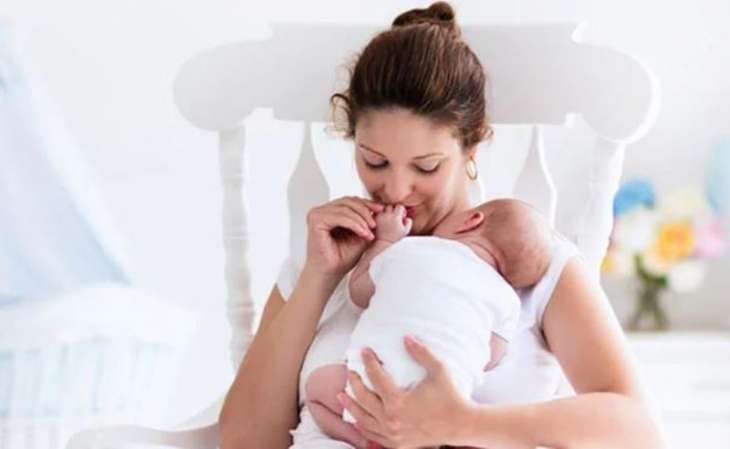As a new mama, deciding how to nourish your baby is one of the first parenting choices you’ll make. There are many great benefits of breastfeeding for babies.
Not only can breastfeeding help your body bounce back after childbirth, it may protect you against certain diseases long after your childbearing years. Women who breastfeed enjoy lower risks of certain cancers.
As you weigh your options, consider these benefits of breastfeeding for mom.
Breastfeeding burns calories
Producing breast milk requires extra energy. Experts estimate the number of calories burned breastfeeding ranges from 300 to 500 a day!
It reduces uterine bleeding after birth
After you give birth, your uterus “is like this large sack.” The blood vessels where the placenta was attached need to close off. One of the benefits of breastfeeding is that it hastens the recovery process.
When you nurse your baby, body releases oxytocin, that helps in uterus contract. These contractions help the uterus shrink back to size, reducing the amount of bleeding that occurs after childbirth.
Breastfeeding lowers your risk of breast, ovarian, and endometrial cancer
Breastfeeding also protect moms against cancers that affect women. Breastfeeding suppresses estrogen, which can promote abnormal cell growth.As per study, women’s breast cancer risk was reduced by more than 4% for each year of breastfeeding.
Likewise, breastfeeding is associated with a lower risk of endometrial cancer–11% lower than moms who didn’t breastfeed, one review found. Another analysis links longer breastfeeding with a lower likelihood of developing ovarian cancer.
It reduces your risk of type 2 diabetes
Breastfeeding for six months or more cuts women’s risk of developing type 2 diabetes by nearly half, compared with moms who don’t breastfeed. Even breastfeeding for less than six months is beneficial, reducing the risk by a quarter.
Breastfeeding lowers risks for heart disease
In a large study involving postmenopausal women, found the longer women breastfeed, the lower their risk factors for developing heart disease. Those reporting a lifetime history of more than 12 months of breastfeeding were less likely to have high blood pressure, high cholesterol, diabetes, or heart disease compared with women who never breastfed.
It may whittle your middle
Breastfeeding your babies can make a real difference in your waistline years later. Mothers who never breastfed had 28% greater belly fat and a 2 1/2-inch greater waist circumference later in life than moms who breastfed all of their children for three or more months.
Some studies suggest you can lose weight while breastfeeding, although the amount of weight loss attributable to lactation is relatively small.
“I think sometimes moms can be frustrated if they’re looking at the scale,” Dr. Schwarz says. “But what we do see is that moms who breastfeed have much less belly fat than moms who don’t breastfeed. And, unfortunately, belly fat is what’s really dangerous later in life,” she says.
Breastfeeding may protect against certain autoimmune diseases
Longer breastfeeding may even protect mothers from developing multiple sclerosis (MS) and rheumatoid arthritis (RA), autoimmune diseases in which the body’s immune system turns on itself.
One study comparing women with MS (or early signs of the condition) with otherwise healthy women found that those who breastfed for 15 months or more were half as likely to go on to develop MS versus moms who breastfed for four months or less.
Likewise, research shows an association between longer breastfeeding and lower risk of developing rheumatoid arthritis. One Chinese study found that among women who’d had at least one live birth, those who breastfed were half as likely to have RA as moms who did not.
It can delay menstruation
You might consider a break from tampons and pads one of the benefits of breastfeeding.
In moms who are exclusively breastfeeding, ovulation resumes sometime between three and five months after delivery, Dr. Flanagan says. “And if a woman is not breastfeeding, ovulation will happen somewhere between four and 10 weeks out from delivery,” at which time she’ll begin menstruating again.
“Some women are really happy about not getting their period back for a while,” she adds.
Agencies
